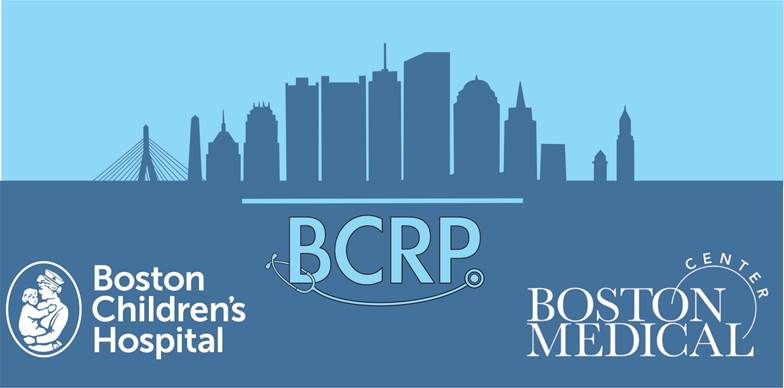Benefiting the Community
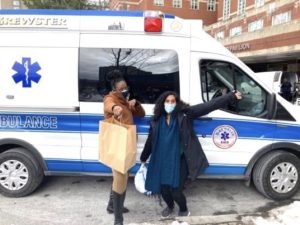
The BCRP is actively engaged in the Boston community and committed to providing outstanding care for Boston’s children. Both Boston Children’s Hospital and Boston Medical Center are the pediatric medical homes for residents from all over Boston, including Roxbury, Dorchester and Mission Hill which are neighborhoods where many families are living at or below the poverty line. Boston Medical Center is the largest safety net hospital in New England and about 73% of our patients are low-income. Boston Children’s Hospital’s Primary Care Center (CHPCC) is the largest provider of pediatric primary care to children in the city. CHPCC sees 11,000 patients annually and 65% come from low income neighborhoods. The patient populations at Boston Medical Center and Boston Children’s Hospital are also reflective of the racial and ethnic diversity of Boston and its surrounding areas. In addition, residents, alongside our interpreter services, provide care in over 30 languages to our patients and also provide care for a number of recent immigrants and refugees. In addition to serving a racially, linguistically, and socioeconomically diverse population clinically, residents also receive formal community health training in the Keystone blocks as part of the Advocacy, Adolescent Medicine, and Child Development curricula. Immersive experiences during Keystone allow residents to learn about and address the needs of many underserved families in Boston.
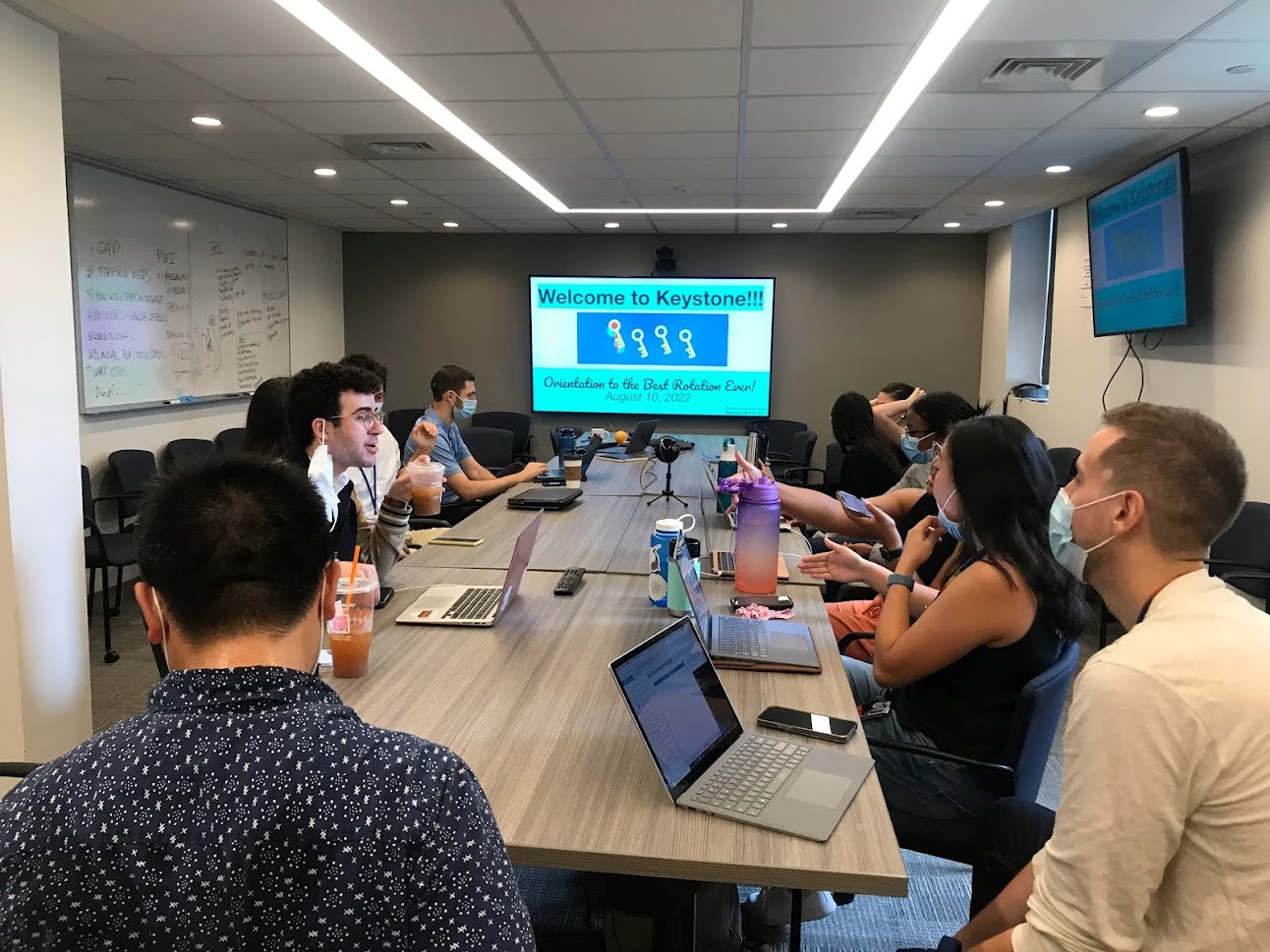
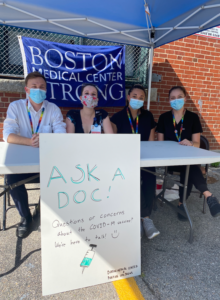
Residents often organize and participate in other community facing efforts – either inspired by their Keystone block rotation, through the Community Arm of the Diversity Council, or other independent group initiatives. These have recently included supporting local organizations such as Forest Hill Runners, Best Buddies, Higher Ground Boston, One Bead, More than Words, and Community Servings. In 2021, our residents developed “Ask A Doc,” through which residents organized and staffed community vaccine clinic sites across the county in partnership with Boston Public Schools. Our residents also joined pediatric residents from other Massachusetts programs for the Residents and Fellows Day at the State House and engaged in fundraising efforts by running in the Boston Marathon.
Community Health and Advocacy Rotation
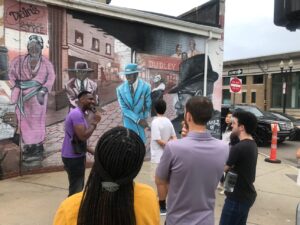
Our Advocacy Curriculum is incorporated into the Keystone block during the PL-1 year. The curriculum leverages resident experience on the wards and in outpatient clinic to provide context for screening for and addressing social determinants of health. Interactive didactic sessions explore the impacts of systemic racism, discrimination and poverty on child health outcomes. Through discussion with many Boston-based advocacy groups and community agencies, residents build familiarity with the many resources available to patients at both institutions and in the Boston community. Residents also receive training in legislative advocacy, participate in skill building workshops, and learn through structured community exercises that complement targeted didactic training in topics such as disability services, family law, health insurance, housing, hunger and nutrition, and immigration services. In addition, residents learn to seamlessly incorporate their advocacy skills into their primary care clinic, developmental and behavioral pediatrics clinics, and adolescent clinics framing advocacy as a central component of being a pediatrician. Every resident is tasked with designing an advocacy initiative during their Keystone rotation. Residents also have the opportunity to explore careers in advocacy and public health at the local, national and global levels.
For residents with a special interest in legislative advocacy, elective opportunities at both the local and national levels can be arranged.
Health Equity Rounds
Established in 2016 at Boston Medical Center by BCRP residents, the Health Equity Rounds program is a Grand Rounds conference series that provides a forum for interdisciplinary discussion of cases that are impacted by bias and structural racism. Participants learn how to analyze the effects of bias and structural racism in individual clinical scenarios, and their overall impact on health care system. Resident conference leaders employ evidence-based tools to help participants recognize and mitigate personally held implicit biases, and leverage these skills to reduce the impact of bias on doctor-patient and interprofessional relationships as a means to reduce structural racism at the institutional level. The Health Equity Round structure has been rolled out at both Boston Medical Center and Children’s Hospital, and now has been adopted a national model for other institutions to begin discussions aimed at dismantling systemic racism. For more information about Health Equity Rounds please visit our website.
